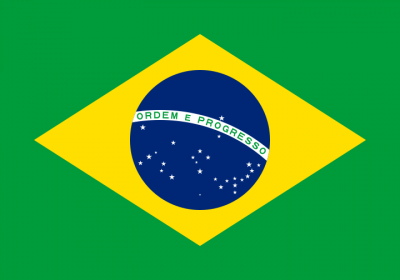Drought in São Paulo: Brazil’s Megacity on Verge of Crisis as Water Rationing, Shutoffs Continue

The past three months have seen the driest winter in 84 years in southeastern Brazil. Water shortages are now critical in São Paulo, home to twenty million people. The city’s primary reservoir is fluctuating between 6-13% of capacity, and officials are estimating São Paolo’s reserves will last a mere 90 days without additional rainfall. The rainy season, from December through February, is over, and sadly, recent flooding within the city has not raised main reservoir levels, which are located further inland. (1)
The primary reservoir at Cantareira feeding much of the metropolitan city is nearly bone-dry. People in São Paulo are resorting to deliveries from bicycle riders carrying jugs of water. Others are digging their private wells on their own land or even in basements, which can lead to contamination issues. Those who can afford it are hoarding water, and the more resourceful are using cisterns and building rainwater catchment systems. Local rivers are polluted due to sewage problems and cannot be used for drinking water. Some have simply fled the city, becoming 21st century “water refugees”. (2)
Due to the massive glaciers of the Andes, the Amazon and its tributaries, Brazil holds 12% of worldwide freshwater and is called “the Saudi Arabia of water”. So why is this drought happening? Scientists are citing deforestation of the Amazon, Brazil’s very own “chainsaw massacre”, as the causal factor of the drought. As climatologist Antonio Nobre explains:
“That’s what we have learned – that the forests have an innate ability to import moisture and to cool down and to favour rain… If deforestation in the Amazon continues, São Paulo will probably dry up. If we don’t act now, we’re lost.” (3)
Government officials deserve part of the blame, as Brazilians cited recent elections and last year’s World Cup, which conveniently allowed politicians to procrastinate and avoid the problem. This could eventually become a public health issue, as a surge in demand for new wells has led to unprofessional drilling techniques. Well experts estimate only 20% of new drilled wells meet guidelines. (4)
São Paolo isn’t the only city in Brazil facing drought conditions. Rio de Janeiro and Belo Horizonte are also facing water shortages, putting a total of 40 million people at risk in the region, comparable to the entire NYC and LA metro areas in the US. The situation is taking a toll as GDP is predicted to fall in the area, and experts question the government’s readiness for the 2016 Olympics in Rio. At the same time, the Petrobas bribery scandal widens and the Rousseff government is coming under intense scrutiny, which may distract leaders from solving the water crisis.
Due to state incompetence and fealty towards private industry, southeastern Brazil’s water reserves have been irrevocably altered. The megaregion will now be forced to limit public and industrial use if it wants to maintain civil stability. Whether the political class has the guts to go through with a major conservation program is questionable. Dilma Rousseff’s Workers’ Party, dubbed as leftist by mainstream analysts, is more accurately a blend of center-left democratic socialism and neoliberal economic practices. The government swings between populist Bolivarian policies to appease its vast working class, and deregulated financial and industrial policy to please its corporate masters.
Brazil is far from the only nation at risk from drought: last year, parts of India, China, Ethiopia, Australia and many smaller countries were at risk. California is estimated to have only one year of water supplies at current usage rates. São Paulo presents a particularly dangerous test case because it is one of the first modern megacities facing this issue.
Despite the siren calls of the global elite, the 21st century may not turn out to be a model of technological advancement and social stability. Global warming, deforestation, and resource depletion are all intensifying, and could easily lead to a century of climate refugees and worldwide impoverishment. World leaders working with NGOs should be at the forefront of climate change issues, rather than indulging in political chess games in Syria, Ukraine, Iran, Yemen, and beyond.

